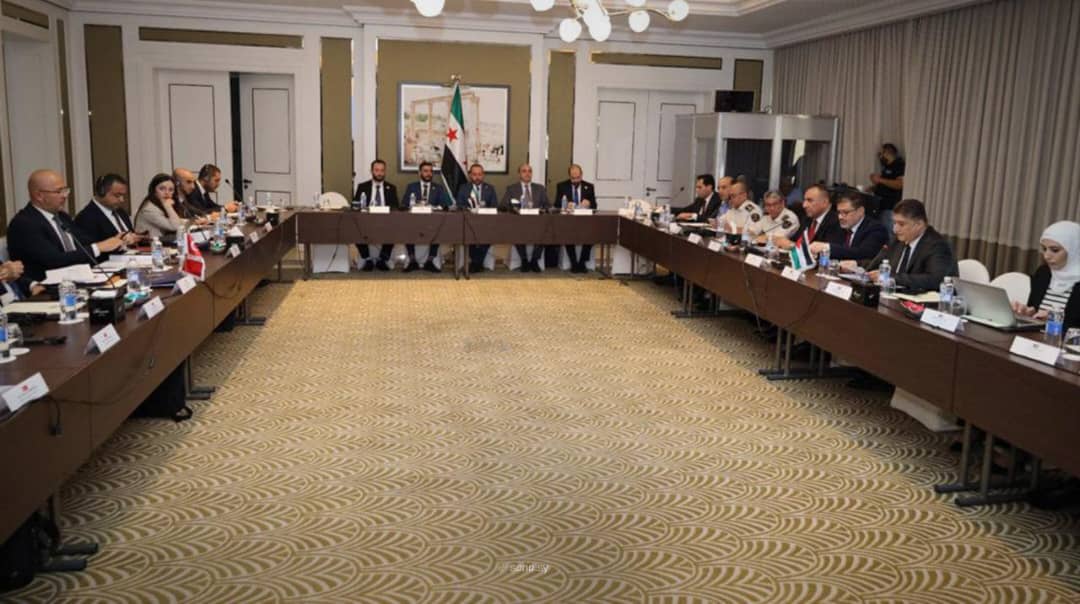A Tripartite Meeting Involving Syria, Jordan, and Turkey to Enhance Cooperation in Transportation and Transit

A tripartite meeting was held in the Jordanian capital Amman on Thursday, gathering representatives from Syria, Jordan, and Turkey, with the aim of discussing ways to enhance regional cooperation in the transportation sector, activate transit movement, and railway connectivity, in a manner that supports economic integration and contributes to establishing stability in the region.
During the meeting, the Syrian Deputy Minister of Transport for Land Transport, Mohammad Omar Rahal, emphasized that "transportation is no longer just a means of transit but has become a fundamental driver of the economy and stability," stressing the importance of facilitating and unifying procedures at land and sea crossings, and developing the transportation network between the three countries.
Rahal explained that "the strategic geographical location of Syria, Jordan, and Turkey makes them a natural bridge connecting the East to the West and the North to the South, providing significant opportunities for achieving economic and trade integration, attracting investments, and expanding inter-trade." He called for "activating land and railway connectivity projects, especially the Hejaz railway, removing obstacles to transit movement, and working on infrastructure development."
The Syrian Deputy Minister also pointed out that "the partnership between the three countries is a strategic necessity," explaining that "Turkey, with its industrial expertise, Syria with its agricultural and human resources, and Jordan with its logistical position, can collectively form a regional economic power," expressing Syria's gratitude to Jordan and Turkey "for their active role in the recovery process."
Rahal reviewed the key vital projects that Syria seeks to develop in cooperation with its brothers, including the reactivation of border crossings, such as the Naseeb-Jaber crossing and the Bab al-Hawa crossing, and the development of railway transport lines, particularly the Gaziantep-Aleppo line and the historic Hejaz line, in addition to updating transport agreements to facilitate truck movement without unloading and reloading.
He emphasized Syria's commitment to joint work to activate regional transport projects and revive the region's role "as a pivotal trade corridor at the regional and global level."
The meeting was attended by the Director of Land Transport at the Syrian Ministry of Transport, Ali Asbar, the Director of Freight Transport, Khaled Khasheh, the Director of Joint Companies, Ahmad Daa's, and the Director of the International Cooperation Office, Iyad As'ad. The Jordanian side was represented by the Secretary-General of the Ministry of Transport, Fares Abu Diah, and his accompanying delegation, while the Turkish side was represented by the Director-General of Foreign Affairs, Burak Ekan, the Director-General of Transport Services Regulation, Murad Bashtour, the Director-General of the Turkish State Railways, Veysi Kurt, in addition to several experts.